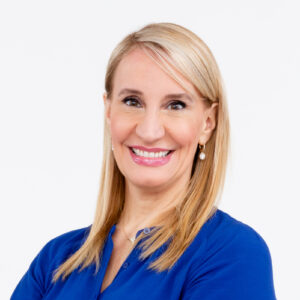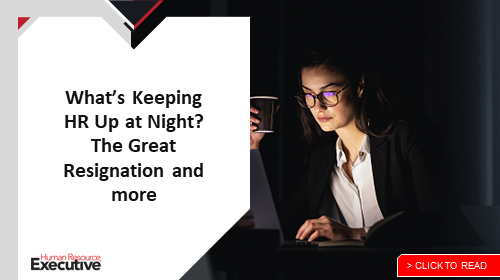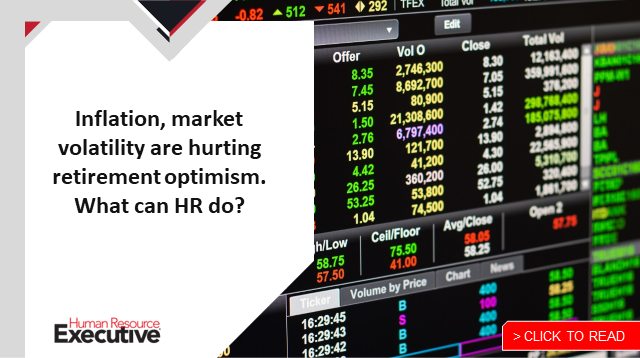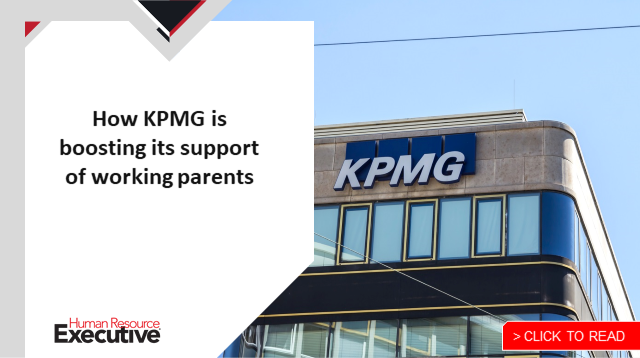When Monique Herena was pursuing an undergraduate degree in business and corporate communications at the University of Wisconsin-Parkside, a professor asked her a question that ultimately changed how she thought about herself—and influenced the course of her career.
“Do you realize you seem to emerge as the leader in class and people naturally want to follow you? Not just because of your thoughts, but because they trust you?” she recalls, noting the compliment not only boosted her confidence at the time but also stayed with her throughout the years as she has shaped her own approach to leadership.
Herena “stumbled” into HR after earning a master’s degree more than 25 years ago—and earned another master’s in organizational psychology and change leadership from Columbia University a few years ago—and says “there was no going back” once she got her feet wet in the field. She went on to hold HR positions at companies including Quaker Oats, Honeywell, PepsiCo and BNY Mellon, where she served as CHRO and senior executive vice president of HR. She joined American Express in 2019 as chief colleague experience officer—a position that encapsulates her early lessons on the intertwining of trust, teamwork and leadership.
HRE: Your title is a bit different from the traditional “chief HR officer.” What sets the role of chief colleague experience officer apart from other HR leadership positions you’ve held?

Herena: In 2018, prior to me joining American Express, our chairman and CEO laid out his vision for the company: to provide the world’s best customer experience every day. When he did so, he also began referring to our employees as colleagues, which created an important shift in mindset.
Our work in HR should always be tightly linked to the company strategy, so when I joined in early 2019, we created a new vision for the future of HR at Amex that’s focused on the colleague experience and making it great every day. We believe the best way to back our customers is to back our colleagues, and our vision, mission and strategy are designed to drive deeper connections with colleagues across the business so we can understand and improve their current and future experience.
We communicated this new strategy, along with our name change from HR to the Colleague Experience Group (CEG), to the entire company. My title, chief colleague experience officer, and the titles of the entire CEG function are a natural evolution of the work we’re doing and reinforce that the experience of each and every colleague really matters to us. Placing our colleagues at the center of everything we do means ensuring they feel supported, feel they really belong and have the backing they need to be and deliver their best every day.
HRE: In what ways has the pandemic reshaped employee expectations at Amex? And how has the company worked to meet those expectations?
 Herena: The pandemic has affected all of us in many profound ways, and we understand that everyone’s experience has been different. Listening to our colleagues and incorporating their feedback is an important part of our culture at American Express. For example, throughout the pandemic, we made it a priority to check in with, listen to and learn from our colleagues. They told us they value having the flexibility to work from home and that they also miss in-person collaboration. That’s why our new way of working framework, or what we call Amex Flex, offers the best of both worlds—providing greater flexibility for our colleagues while ensuring we preserve the important benefits of our very special culture, which is built on in-person collaboration and relationships.
Herena: The pandemic has affected all of us in many profound ways, and we understand that everyone’s experience has been different. Listening to our colleagues and incorporating their feedback is an important part of our culture at American Express. For example, throughout the pandemic, we made it a priority to check in with, listen to and learn from our colleagues. They told us they value having the flexibility to work from home and that they also miss in-person collaboration. That’s why our new way of working framework, or what we call Amex Flex, offers the best of both worlds—providing greater flexibility for our colleagues while ensuring we preserve the important benefits of our very special culture, which is built on in-person collaboration and relationships.
We pride ourselves on offering a compelling colleague value proposition that includes meaningful work and many opportunities to grow throughout their career, a flexible and inclusive culture with a strong sense of belonging, and competitive pay and benefits to support their holistic wellbeing—their mental, physical and financial health. At its core, our value proposition places our colleagues at the center of everything we do.
HRE What has been the employee response to the rollout of Amex Flex? Any early lessons learned?
Herena: Since we announced Amex Flex, the majority of our colleagues have chosen a hybrid schedule, opting to come into the office about two days per week on average and work virtually for the rest. More than 40% of our U.S. colleagues have opted to be fully virtual, a percentage that has doubled from levels before the pandemic.
Although flexibility has always been part of what we offer colleagues, we understand that Amex Flex is a significant change for our colleagues and the organization. We are continuing to listen to our colleagues, learning from their feedback and adapting our policies as appropriate. Across all of our feedback channels, we’ve noticed some important themes: Our colleagues feel positive about American Express’ overall flexibility—having the ability to balance how and where they work. Our tools and technology have enabled colleagues to be collaborative no matter where they are. Colleagues greatly appreciate the frequent, clear and transparent way in which we’ve communicated and provided critical information.
HRE: What role is/will technology play in shaping the employee experience at American Express?
Herena: Our virtual work model during the pandemic and our Amex Flex work model now are extensions of the strategy we started before the pandemic. We were already promoting a more flexible, mobile-parity culture, and our investments in collaboration tools, hardware, infrastructure and security protocols had been in place before the pandemic. We continued to make investments throughout the pandemic to enhance our colleagues’ ability to collaborate effectively with capabilities such as chat/group chat, digital whiteboards, poll/survey tools, co-authoring documents and cloud storage, to name a few.
 The rules of how people want to work have changed through the pandemic. To win the war for talent today, you need to have a strategy that includes workspaces and tools that support flexibility for your people and give you a competitive advantage—enabling colleagues to work where they want, how they want, using a range of devices, securely.
The rules of how people want to work have changed through the pandemic. To win the war for talent today, you need to have a strategy that includes workspaces and tools that support flexibility for your people and give you a competitive advantage—enabling colleagues to work where they want, how they want, using a range of devices, securely.
HRE: In what ways has your career in HR surprised you?
Herena: I have surprised myself many times! The diversity of my experiences and path is something I never could have dreamed up. My career has spanned across many industries, various leadership roles and many different geographic locations. I didn’t intend to end up in HR but my gravitation toward people, bringing out the best in others and the variety of opportunities within it has allowed me to take risks to accelerate my learning and continue to grow as a leader. There have been many times I had leaders who took a chance on me, based on my business and leadership results, and even though I didn’t feel 100% ready, I pushed myself out of my comfort zone. Those were the times I experienced the most learning and growth—and was able to deliver with my teams.
One thing that has been key to success has been staying grounded in who I am and what influences and inspires me—yes, doing great work focusing on customers, but at the end of the day it’s about your home and work team. My husband and three children—we are a team. The decisions I’ve made and the risks I’ve taken in my career and life have all been decided as a family. We’ve moved multiple times across the U.S. and to Dubai. The move to Dubai was one of the biggest changes for us as a family and resulted in tremendous personal and professional growth for all of us. It was an amazing experience, as I was covering a very broad region across Asia and the Middle East, that allowed my entire family to learn about new cultures and for me to learn about the power of diverse business teams and the balance of local and global approaches.
HRE: If you hadn’t pursued HR, what path do you think your work would have taken?
 Herena: If I hadn’t pursued HR, I think I would have been a teacher or a professor. The biggest influence on my life and career is my family. Many of my family members were teachers or entrepreneurs and they worked really hard every day. One of the best things I learned growing up was that a strong work ethic matters and sets you apart. I learned from my dad, who was a high school teacher, and from my grandparents, who owned and operated an Italian restaurant. This all set the tone for me, and I learned the value of hard work and bringing out the best in others from a young age.
Herena: If I hadn’t pursued HR, I think I would have been a teacher or a professor. The biggest influence on my life and career is my family. Many of my family members were teachers or entrepreneurs and they worked really hard every day. One of the best things I learned growing up was that a strong work ethic matters and sets you apart. I learned from my dad, who was a high school teacher, and from my grandparents, who owned and operated an Italian restaurant. This all set the tone for me, and I learned the value of hard work and bringing out the best in others from a young age.
I had many people in my life who believed in me and stretched me along the way, and I am always focused on making myself and them proud and to never regret their support. I love what I do, and it’s because we can all be better in the next moment than we are right now. I believe in and see the potential for growth in everyone.

